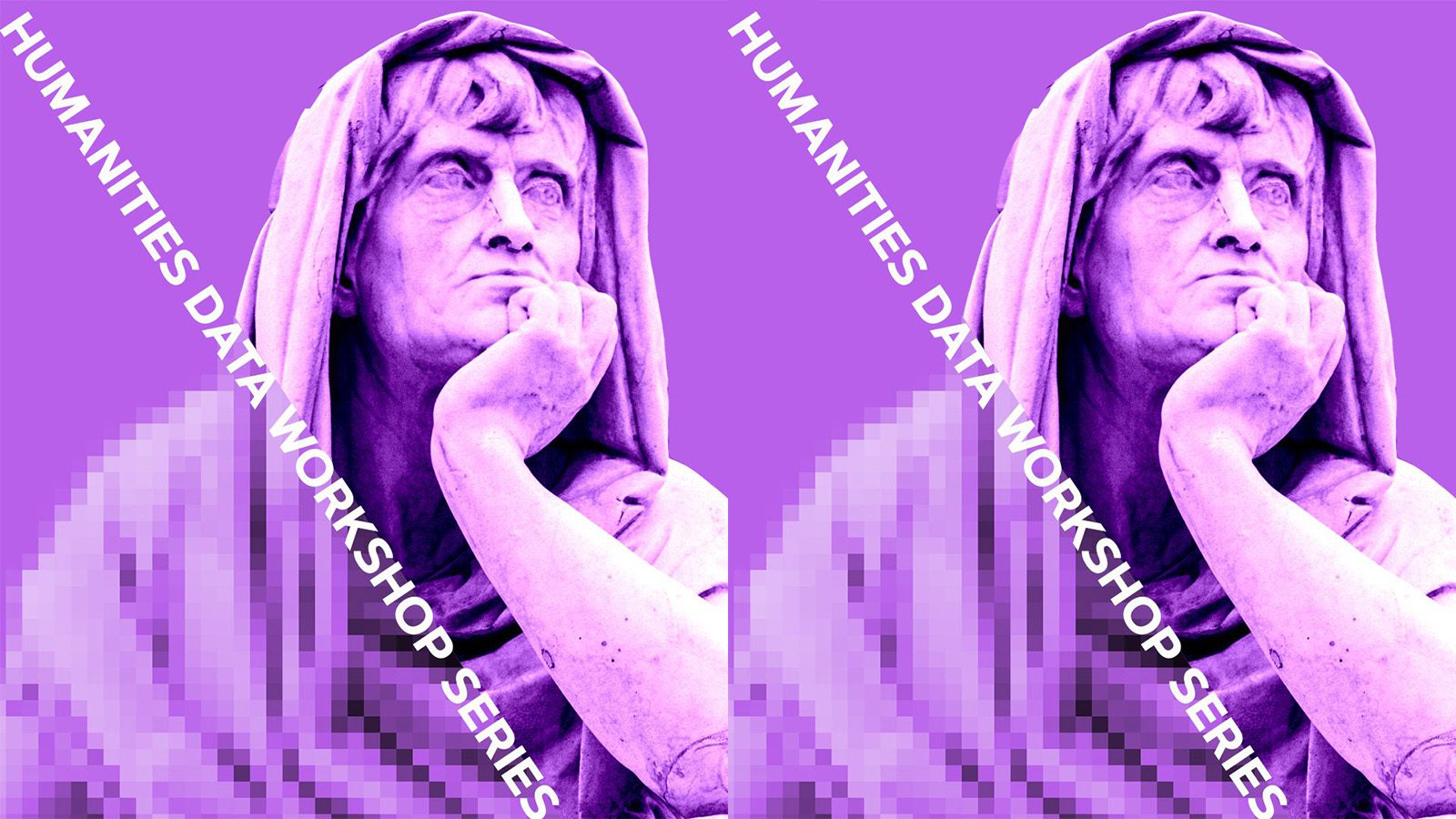By Lisa Kraege, Humanities Council
This fall, the Center for Digital Humanities (CDH) and Princeton Research Data Service (PRDS) launched The Humanities Data Workshop Series, a six-part series that explores what data means for humanities scholarship. The series will continue this spring with the workshop “Cleaning Humanities Data,” on February 2.
The series was co-organized by Sierra Eckert, Perkins Postdoctoral Fellow in the Humanities Council and postdoctoral research associate at the CDH. Eckert, along with PDRS’ Wind Cowles, director of research data and open scholarship and Matthew Chandler, research data management specialist, worked to create workshops that would reach humanists and lower the barrier-to-entry for humanities scholars working with data.
Meredith Martin, faculty director of the CDH, said the workshops were designed for both faculty and graduate students. “Humanities data is much more complicated and requires specific kinds of knowledge,” she said. “Humanists often don’t realize that they are already working with data in a variety of ways.”
The interdisciplinary workshops are aimed at all skill levels. “In designing a series of lightweight workshops, we wanted to make them accessible for scholars who might not see themselves as ‘data-driven’ researchers,” Eckert said.
The three fall events, led by Eckert, focused on the early stages of finding and conceptualizing data. The first workshop introduced participants to the concept of humanities data, while the second and third focused on methods of data searching and how researchers can begin to structure their data.
Spring workshops will focus on managing data once it’s been collected. The first event, titled “Cleaning Humanities Data,” will dive into questions of research management. The next, “Preserving Data” will address how to ethically preserve a dataset. Finally, the series will conclude with a capstone event titled “Ethical Considerations in Working with Humanities Data.”
“We’ve been moving from general considerations to more specific areas of concern through the series so far,” said Chandler, who will take the lead on facilitating the spring workshops. “I look forward to continuing to dig deeper and explore the nuances of data cleaning and preservation.”
All are welcome to register, and participation in past workshop sessions is not necessary.
With attendance from humanists from a variety of disciplines, participant feedback has been one of the highlights of the series so far, the organizers said. “We’ve been thrilled to hear back from participants––from art historians to comparative literature students–––that the mix of practical and theoretical material in the workshops helped get them started exploring [digital] resources,” Eckert said.
Eckert is teaching Data and Literary Study: A Research Lab this spring, where she’ll be able to further explore the digital humanities with undergraduate and graduate students.
















